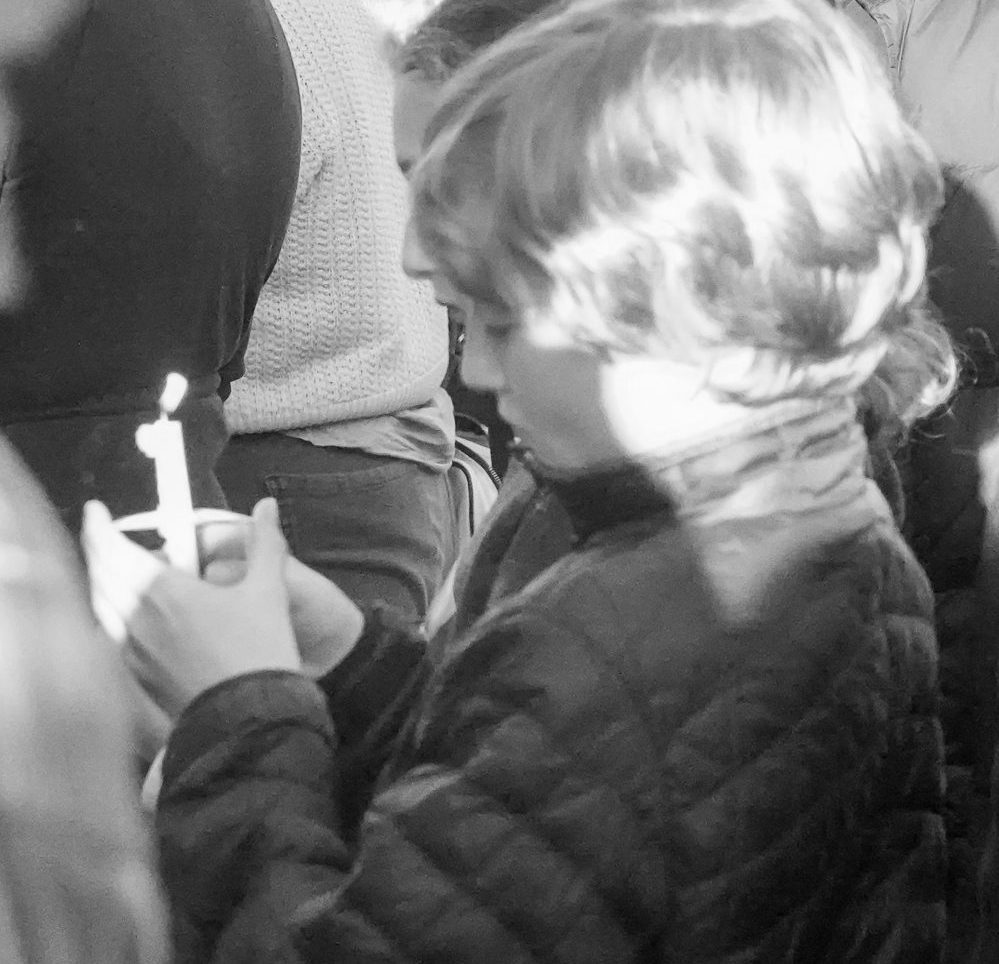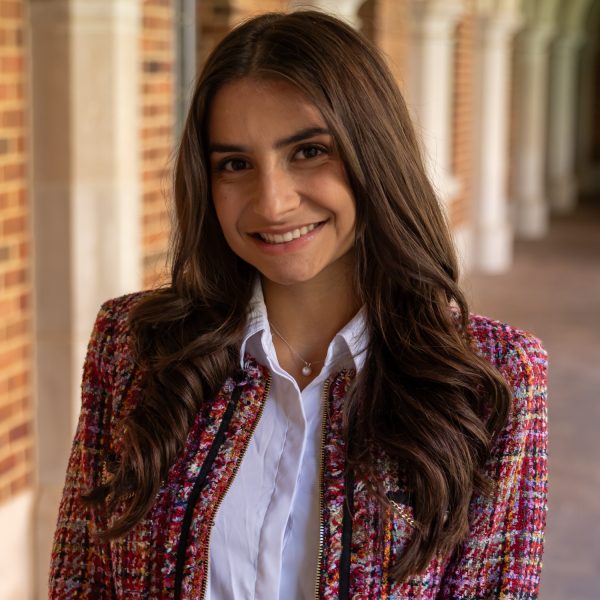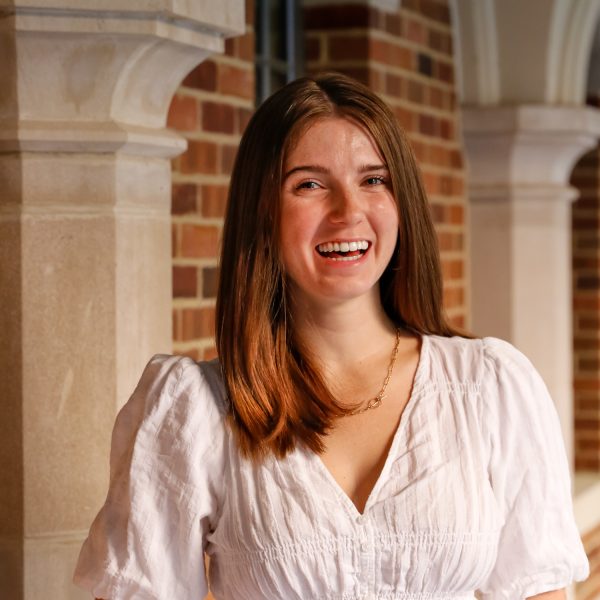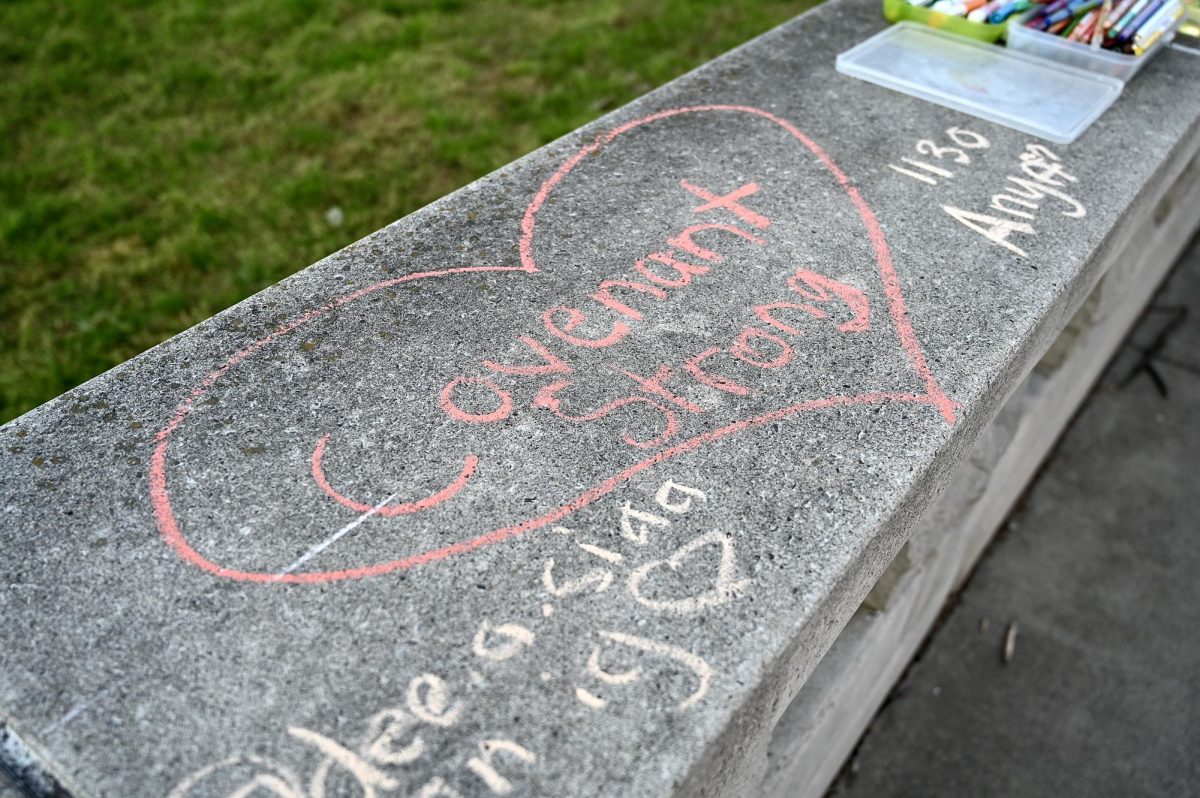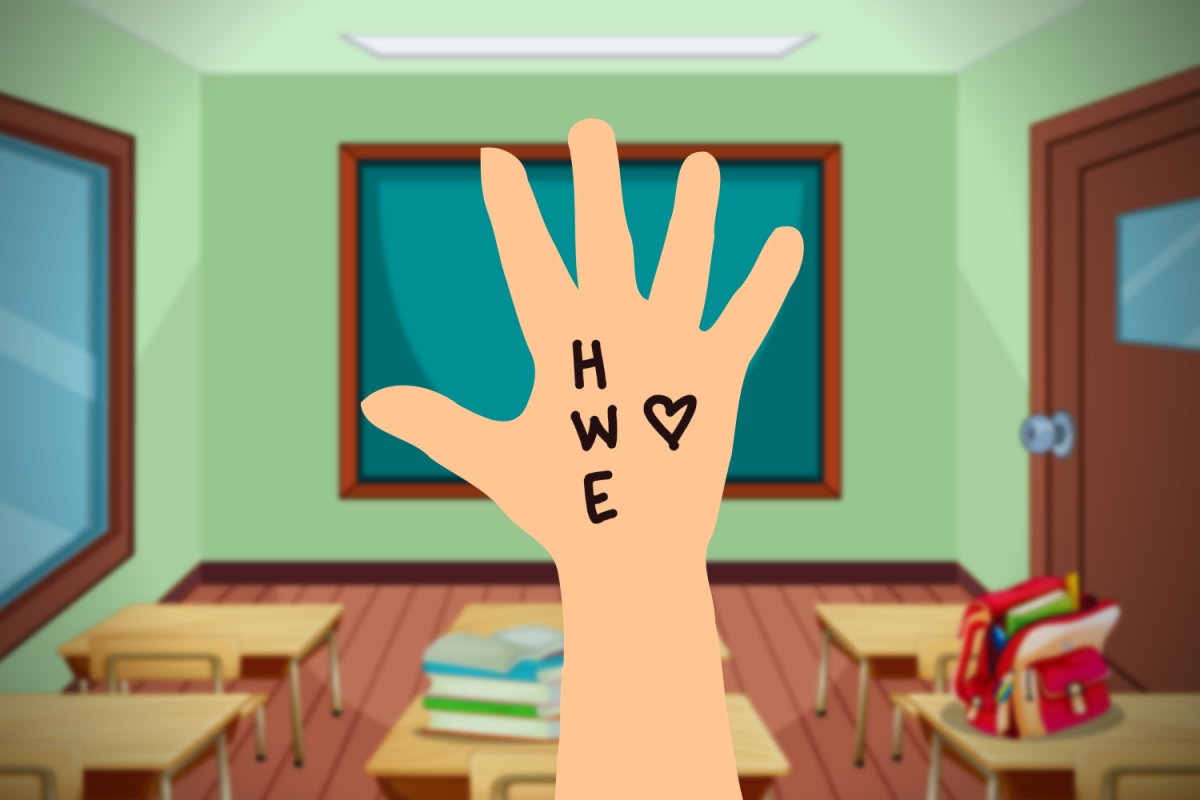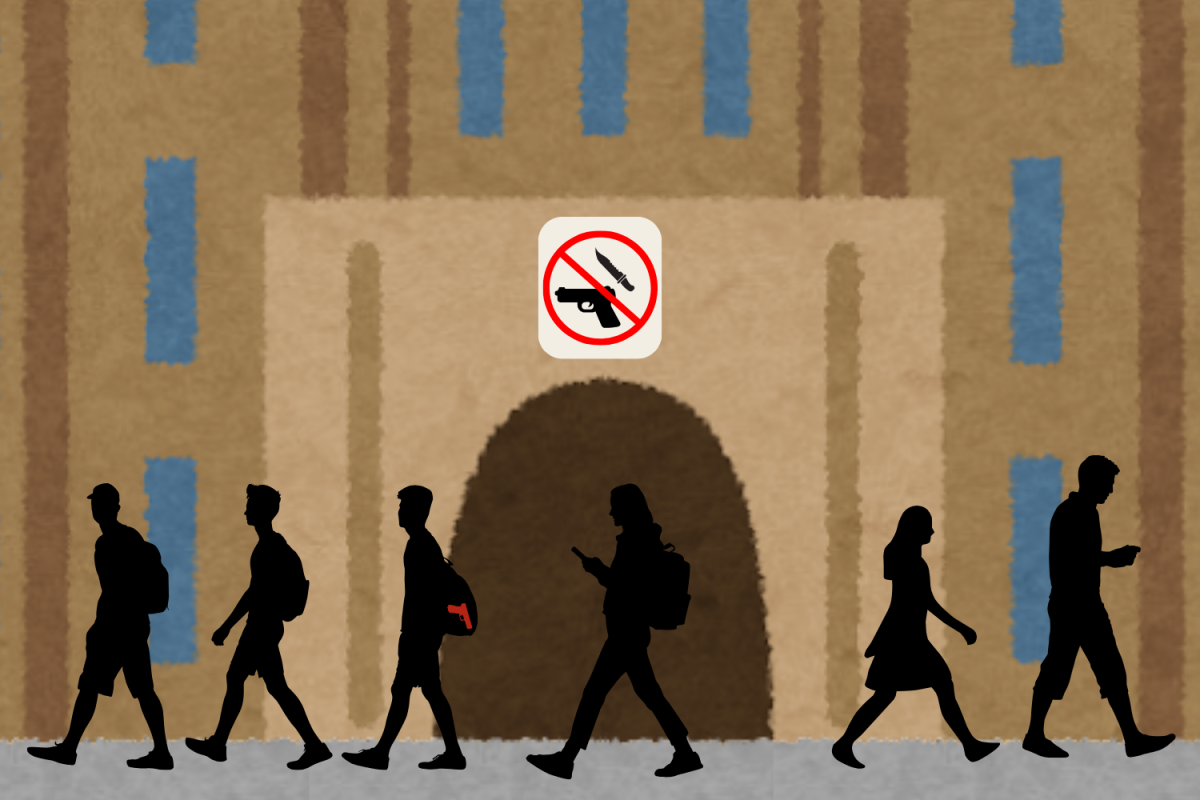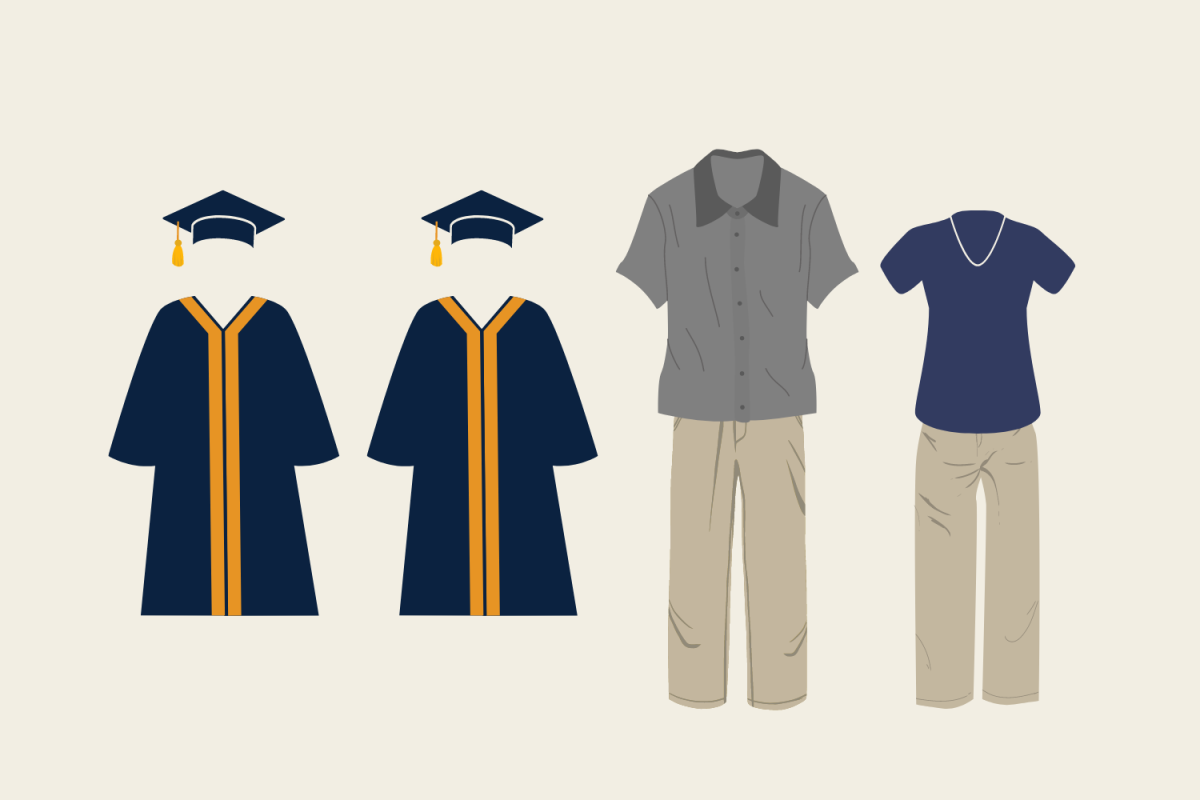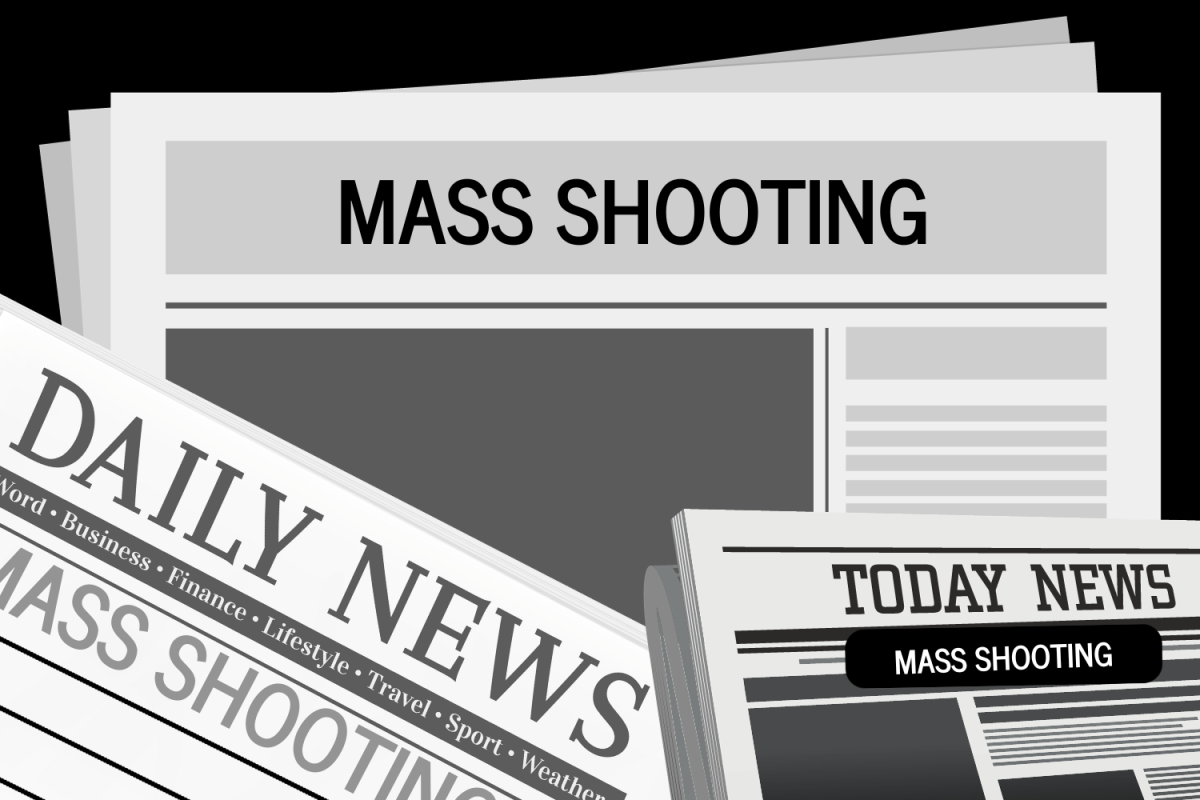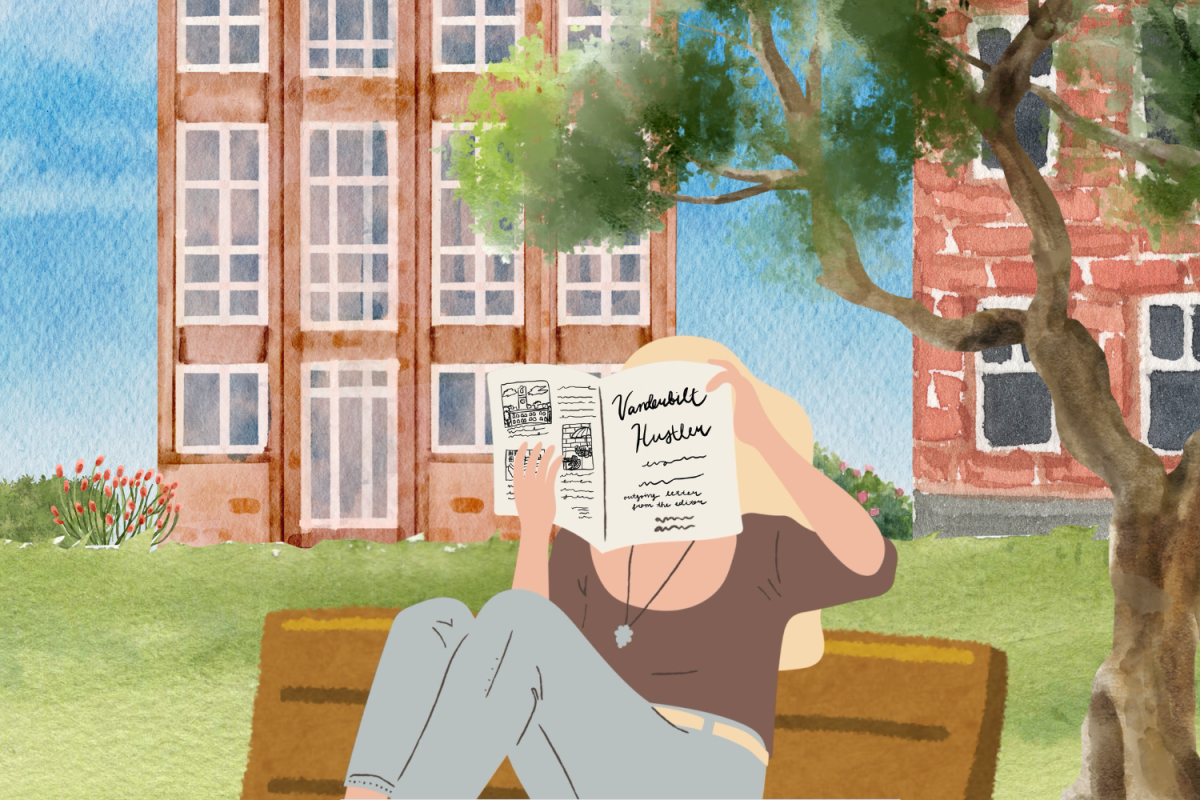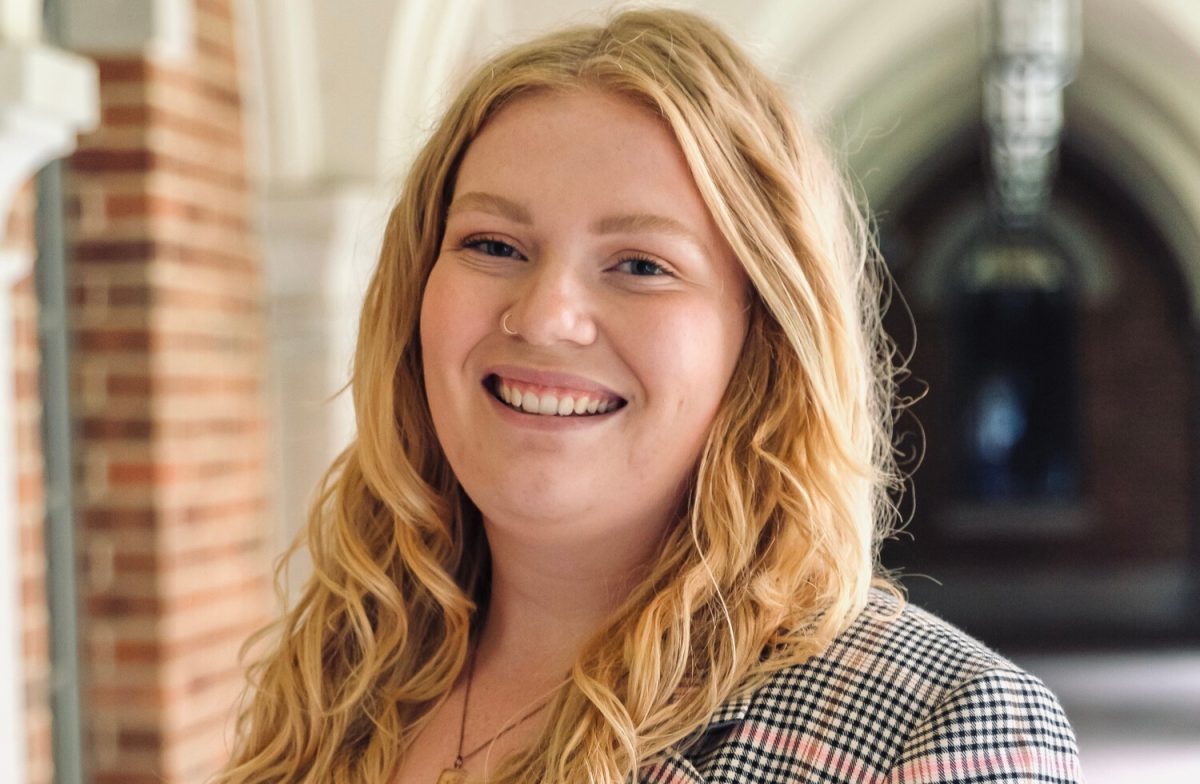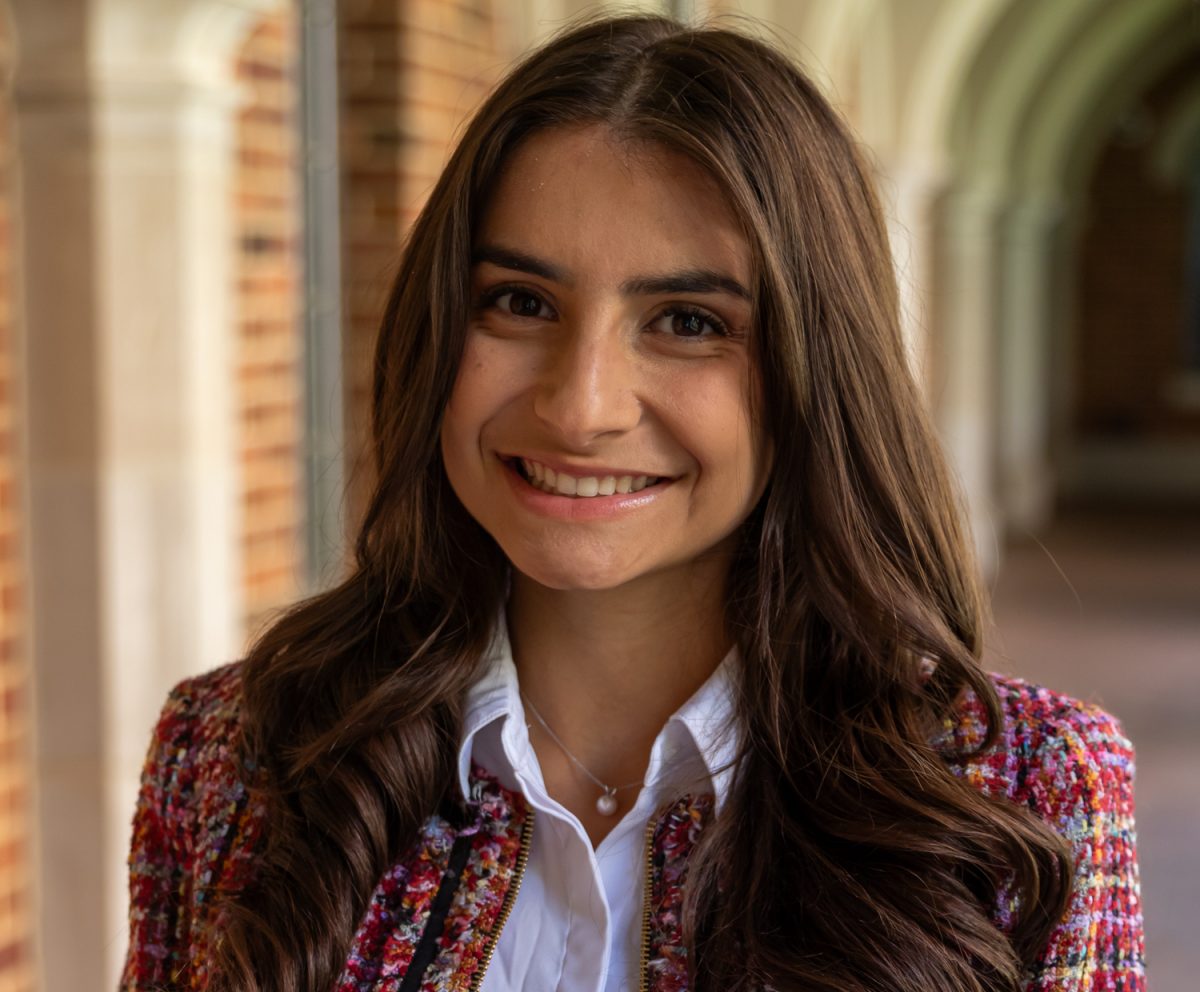As I sat in class Monday morning, distant sirens sounded in the background. Attending school so close to VUMC, it’s common to hear these wails, and I instinctively tuned them out.
Soon, though, texts about a local school shooting drew the sirens to the foreground of my thoughts, and dread suddenly overtook me. My mind began swirling with questions about headlines and interviews and — most importantly — the people in the ambulances I heard wailing past. Even after they paused, I could still hear the sounds echoing in my mind.
Those sirens will haunt me for a long, long time.
While trying to process my emotions about the shooting, I had a Google Doc open and was anxiously typing up the beginning of an article. I was in contact with VUMC Chief Communications Officer John Howser, who was updating reporters about the incident. A few minutes after the sirens stopped, I received an email about the three children who were shot at The Covenant School: “All three were pronounced dead after arrival.” It hit me that the timing of the ambulances sounding and then stopping correlated scarily well with the timing of this message. A lump formed in my throat as I realized that those children who lost their lives were probably being rushed to the hospital in the very ambulances I had heard.
I’ve written over 90 articles for The Hustler in addition to pieces published on other platforms. I’ve learned to write fast and paraphrase well. Yet, I sat at my desk in an empty classroom long after class had ended trying to figure out how to paraphrase Howser’s seven-word message. How do you best convey the death of budding life?
I’ve faced many challenges as Editor-in-Chief and as a reporter. I’ve worked with sexual assault survivors to share their stories; I’ve written about legislation that affects the livelihoods of those around me; I’ve worked with writers to report on student death; I’ve written about shootings, some even at other schools. But this time was paralyzing. I’ve never been this close to a school shooting. I’ve never had to make sense of a tragedy in my community and lead others in doing so, all while trying to process my own grief.
Almost immediately after I started writing for The Hustler, I developed an affinity for covering breaking news. The fast-paced process of writing, editing and hitting publish on a story all within an hour of it happening gives me an adrenaline rush every time. I love the urgency it brings and, at the same time, how the urgency dispels quickly.
This time, though, the urgency has persisted.
What do you say to writers — fellow students — who are scared to cover on-campus events for fear they could be next? What do you say to trans writers who don’t want to include their name on their work in part for fear they could be attacked in the wake of political narratives surrounding the shooting? What do you say to writers who are scared to walk across the campus bridge to the newsroom for fear of being close to VUMC and the ambulances? What do you say to writers who resignedly tell you that they can help cover a school shooting because they’ve done so before in their hometown? What do you say to writers who want to transfer schools because they don’t feel safe here? What do you say to writers who are triggered by the sound of ambulances? What do you say to a 175-person staff of wide-eyed writers looking to you for answers? What can possibly be said to comfort writers who leave the newsroom to vomit in the middle of reporting on the shooting?
There is nothing that can be said. There are no answers.
My team at The Hustler and I have spent the past week in a fog. For six hours on Monday, I scrolled through articles, live streams of press conferences, social media posts, gun violence statistics, legislation and memorials. I compulsively scoured the internet looking for more information on the story, desperate to make sense of it all. Staying on top of every unnerving detail of the incident made me feel like I had a sliver of control over it, but also sent me into continuous spirals of grief. It prevented me from functioning — I’ve barely touched any classwork in the past week, unable to focus on Brightspace discussion questions that seem irrelevant in the wake of tragedy.
It has been heartbreaking to connect with so many students, faculty, alumni and community members after the incident and hear their uniquely horrifying stories and connections to this shooting. I grieve for the innocence lost.
I don’t mean to earn your pity. I love what I do, and it’s a privilege to get to share your stories. Although it cuts deep when those anecdotes are so raw and gut-wrenching, it makes them all the more necessary to read and share. Amid my pain and grief, it also gives me hope to hear of many of my peers keeping up with this reporting.
While it has been reassuring to know that our reporting is keeping our community informed, I am also concerned by how many students have already pushed this incident to the side.
There are thousands of reporters, writers and artists sharing powerful information and stories about this shooting. I know how hard it is to read them, but keeping up with what’s going on around you is crucial for your and others’ safety. It’s a privilege — and a tragic fallacy — to think you don’t have to pay attention. While it’s important to take care of yourself and give yourself space to grieve, becoming apathetic or ignorant is a travesty. If you think it’s too hard to read about others’ loss, imagine how difficult it would be to experience it first-hand.
Reposting a graphic on Instagram on the day of the shooting, skimming a breaking news story about it and then forgetting about it 48 hours later is antithetical to bringing about the change for which those very Instagram stories claim to advocate. Media outlets — including The Hustler, mass media and The Trace, a non-profit, bipartisan newsroom solely dedicated to reporting on gun violence — conduct year-round, extensive coverage of gun policy, gun reform advocacy and gun violence. Although they’re challenging reads, I implore you to stay up to date with these stories, not just when it’s convenient or immediately relevant. I personally recommend you read about the 78 long minutes of the Uvalde shooting, how an AR-15 affects the human body — which was chillingly posted just four hours before the Covenant School shooting — and testimonies from fellow Vanderbilt students about gun violence.
I also urge faculty members to adjust their course content — which they often emphasize is uniquely applicable to our lives — to address this tragedy. Make it real. Help us think critically about our terrifying reality. Grant us leniency as we all try to process this horror; it’s a testament to the normalization of gun violence and school shootings that we are expected to go on as normal with barely a pause in our daily activities after such a nightmare.
I applaud those professors who have been an example of the value of attentiveness that they preach in the classroom, such as those who have canceled class to allow students to attend anti-gun violence demonstrations or who have analyzed gun violence and this shooting in the context of their course topics. Yet, others haven’t mentioned the shooting even when their course material directly correlates with gun violence, public policy, mental health and medicine. This application is crucial for being informed scholars and problem-solvers. If your professors aren’t guiding you in paying attention, take it upon yourself to connect class material to current events.
I know there is only so much we can do to prevent the horror stories of gun violence, especially considering our elected leaders seem to be more focused on other matters. But, as one of my professors said on Tuesday, “nothing definitely does nothing.” At the very least, educate yourself. Look around.
Most of all, please pay attention.


